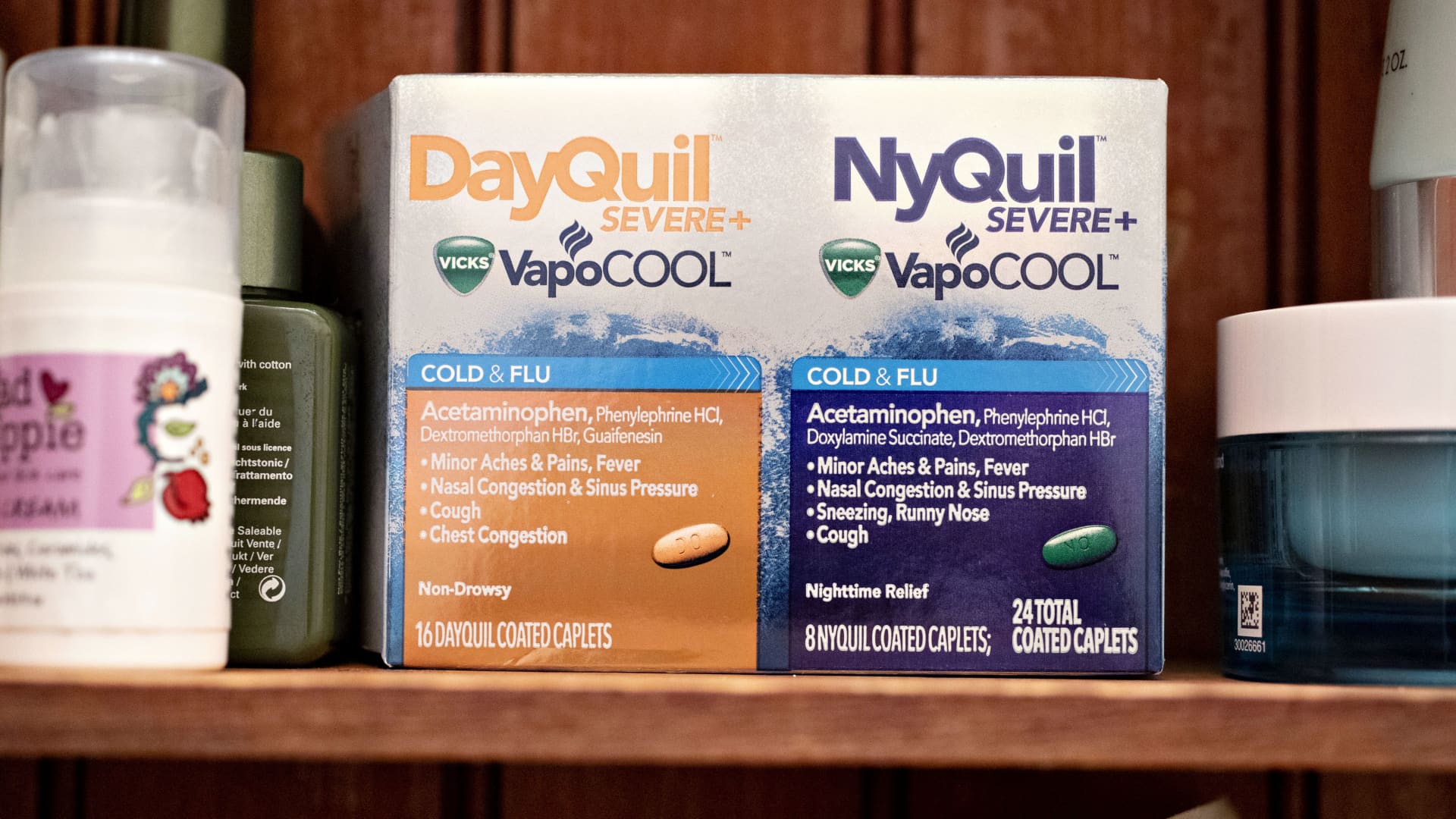
A combination package of Procter & Gamble Co. DayQuil Severe and NyQuil Severe brand cold and flu medicine is arranged for a photograph in Tiskilwa, Illinois.
Daniel Acker | Bloomberg | Getty Images
The main ingredient used in many popular over-the-counter cold and allergy medications doesn’t actually work to get rid of nasal congestion, an advisory panel to the Food and Drug Administration declared Tuesday.
In a unanimous vote, 16 advisors said oral versions of phenylephrine – a nasal decongestant found in versions of drugs like Nyquil, Benadryl, Sudafed and Mucinex – aren’t effective at relieving a stuffy nose.
The FDA typically follows the advice of its advisory committees but it is not required to do so. The agency could potentially move to begin a process that removes phenylephrine from the market, which would force manufacturers to pull widely used cough and cold medications from store shelves and reformulate those products.
That could affect Procter & Gamble, the manufacturer of all versions of Nyquil, and the Johnson & Johnson spinoff Kenvue, which manufactures Tylenol and Benadryl products. Drugs with phenylephrine generated $1.8 billion in sales last year, according to data presented Monday by FDA staff.
A spokesperson for the Consumer Health Care Products Association, a trade organization representing manufacturers and distributors of over-the-counter drugs, didn’t immediately respond to a request for comment on the advisory panel’s vote.
Pulling cough and cold pills from the market could also force consumers to switch to entirely new medications or liquid and spray versions of phenylephrine, which were not included in the review by the FDA advisors.
The two-day advisory panel meeting was prompted by researchers at the University of Florida, who petitioned the FDA to remove phenylephrine products based on recent studies showing they failed to outperform placebo pills in patients with cold and allergy congestion.
The same researchers also challenged the drug’s effectiveness in 2007, but the FDA allowed the products to remain on the market pending additional research.
Yet FDA staff, in briefing documents posted ahead of the meeting this week, concluded that oral formulations of phenylephrine don’t work at standard or even higher doses. A very small amount of the drug actually reaches the nose to relieve congestion, the agency’s staff said.







